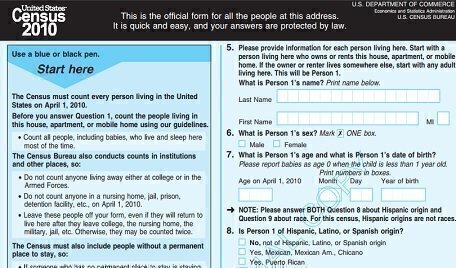Saying there is not enough time to go on waging a court battle over adding a question about citizenship to the 2020 census, the Trump Administration decided on Thursday to turn to already existing government records to get the data, insisting that would give an even more accurate count.
 After the Supreme Court ordered the Administration to reconsider the issue, President Trump had repeatedly insisted that he would go forward anyway. But the President and Attorney General William Barr jointly announced that the question would not be asked. Before a crowd assembled in the White House Rose Garden, Barr argued that there was never any idea of defying the Supreme Court’s ruling.
After the Supreme Court ordered the Administration to reconsider the issue, President Trump had repeatedly insisted that he would go forward anyway. But the President and Attorney General William Barr jointly announced that the question would not be asked. Before a crowd assembled in the White House Rose Garden, Barr argued that there was never any idea of defying the Supreme Court’s ruling.
A Justice Department spokeswoman said that its attorneys “will promptly inform the courts” of the new decision, which will be spelled out formally in a presidential Executive Order. The issue is still on the docket of three federal trial courts, and it is not immediately clear whether those cases will now be shut down altogether. If there is no continuing controversy, the federal courts would have no jurisdiction to decide those cases.
However, attorneys representing the state and local governments and civil rights groups that joined together to challenge the plan to ask about citizenship had stressed in court filings this week that they wanted binding assurance that the Administration could not change its mind again -- as President Trump had done right after the Supreme Court decision had come out. Others in the government were ready to give up the plan, but they were overruled temporarily by the President.
Another potentially lingering dispute involves the challengers’ demand that some officials in government be punished for the way they had handled the census controversy over the past year or more, particularly by alleging making misleading or false statements about the plan. That might remain an open issue even if the lower courts are persuaded that the controversy has now been settled against adding the citizenship inquiry.
The President indicated that his Executive Order, when issued, would call on every agency of the federal government to cooperate in probing their records for information about who among those living in the country is a citizen, who is not a citizen, and who is an undocumented immigrant without legal permission to be in the country.
All of that information, the President said, is to be funneled to the Commerce Department – which manages the census. Although both the President and the attorney general said this would make the 2020 census count of U.S. population more complete and accurate, the data apparently would serve as a supplement to the count that emerges from the census itself. If the citizenship question is not on the basis census forms, that would not be a source for data about citizens and non-citizens.
Both the President and the attorney general indicated that one of the reasons they want data about who is a citizen and who is not is to provide it to the state legislatures for use when, in 2021, they undertake to allocate among the states the 435 seats in the U.S. House of Representatives to account for shifts in population since the prior census taken in 2010.
And both of them at least hinted that they expected at least some legislatures to begun dividing up seats in the House and drawing new election districts not on the basis of the total population of each state, but on the total of voters in each state.
Basing new election district maps on voters rather than total population would very likely be to the advantage of Republican candidates. Now, every state bases seat allocation in the House on its total population – that is, everyone, voter or not. Similarly, election districts for state legislatures are now based on total population.
Those who do not have a right to vote – that is, all non-citizens – tend to be concentrated in larger states and larger cities, where Democrats are politically stronger. Thus, switching to voter-based allocation would thus tend to favor the GOP.
Attorney General Barr did comment that his department would be making a study of the idea of leaving out "illegal aliens" -- immigrants living in the U.S. without legal permission -- of the population figures used for dividing up seats in the House and drawing new election districts for state legislatures and local governing bodies. If that is done, it presumably would also put the most value on voter-based figures.
Lyle Denniston has been writing about the Supreme Court since 1958. His work has appeared here since mid-2011.







